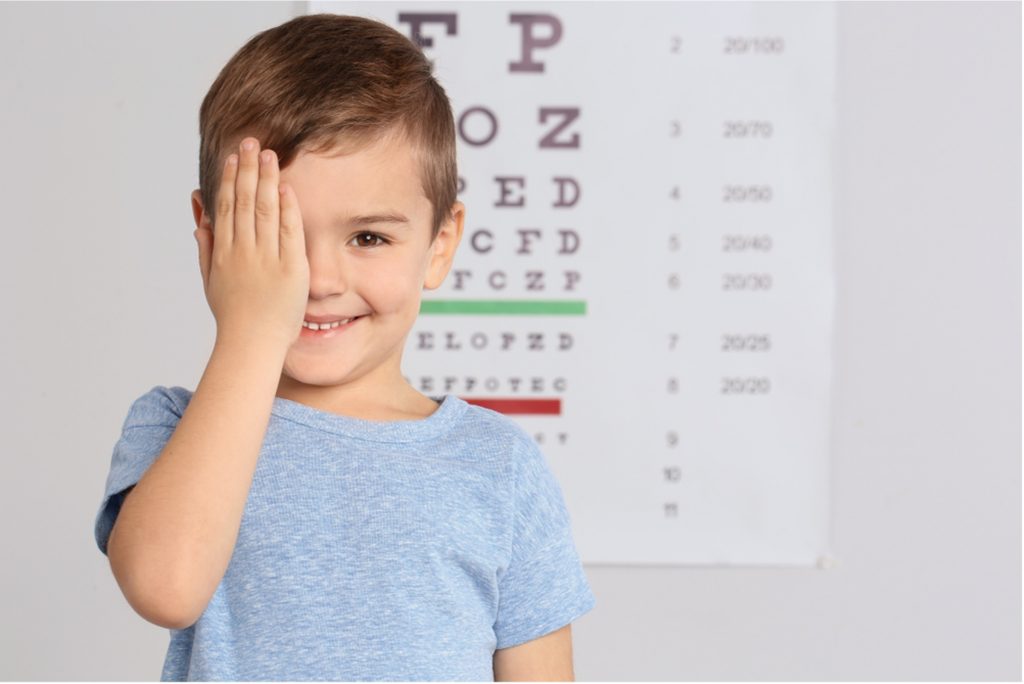Posted on: 30 November, 2021
Good eyesight in children is vital for their development and to help them reach their full potential, particularly at school but also in social settings. It is reported that as many as 1 in 5 children have an undiagnosed eye condition. Detecting eye conditions early in life will aid in the treatment process, also making it easier for your child to adjust to wearing prescription lenses. At R. Woodfall we highly recommend all parents take their children for their first eye examination before they start school. Since eye conditions and vision problems can make school life rather difficult for young children. Regular eye examinations should be scheduled in, much like dentist appointments and doctor check-ups. As children’s eyes are still developing, these should be examined much more frequently than an adult’s eyes.
Should your child require glasses to help them see, we will arrange follow up appointments to ensure these are working as they should be. The teams across the R. Woodfall group are also trained to help you and your child find the perfect frames for their face, making sure they fit comfortably and securely. Book your child’s eye appointment today.

Sometimes children are unable to communicate problems they may be experiencing, particularly younger children who may not realise they have a problem with their vision. For parents and also carers and teachers, there are a few signs which may indicate a child would benefit from an eye examination. Possibly requiring prescription lenses as a result. These signs include:
If your child has never had an eye examination before, a good way to prepare them for this experience is to explain the process to them step-by-step. At no point during an examination will your child experience any pain or discomfort.
Eye examinations for children do not differ massively from eye examinations for adults. Except, of course, our optometrists will explain things in much simpler terms. Making this a relaxed and generally easy-going experience for your child.
Since younger children may find it hard to read letters and words, optometrists will instead use pictures and symbols during their eye test. Asking your child to identify what they see. During their eye test, the optometrist will also test the child’s eye reflexes. Observing the eye movement from left to right and up and down. Usually, they will ask your child to follow the movement of an object with their eyes.
Your child will then be asked to look through a selection of lenses, saying whether what they see is blurry or clear to them. This will help to identify a refractive error.
As a parent you will also be asked about your family history of eye conditions and whether your child had any issues at birth which may affect their eye health.
As well as taking your child to regular eye tests, you can also practice the following eye care tips:
Copyright 2024 R. Woodfall. All rights reserved.